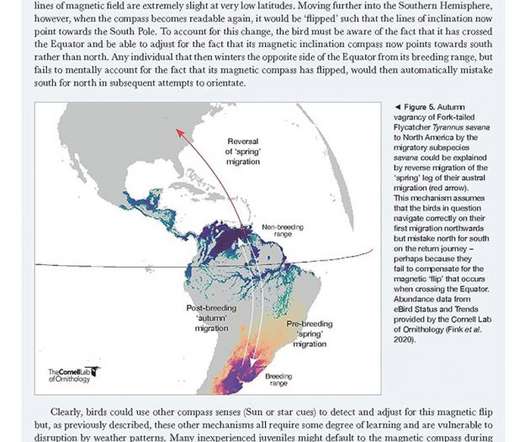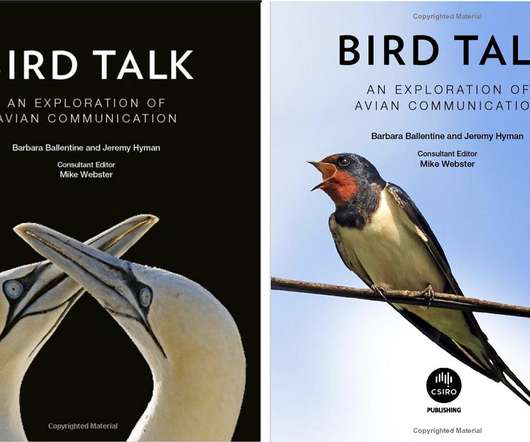Vagrancy in Birds: A Book Review
10,000 Birds
APRIL 5, 2022
There are many more factors than I imagined: compass errors, wind drift, overshooting, extreme weather and irruptions, natural dispersal, and human-driven vagrancy. Next time, I’ll know why. Some birders may want to carefully read the chapter on human-driven vagrancy, which takes up the question of ship-assisted vagrancy.




















Let's personalize your content